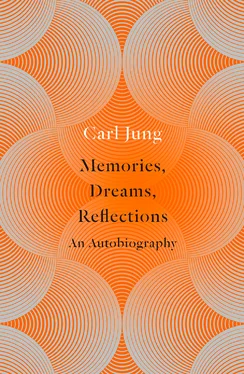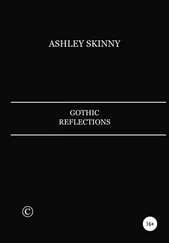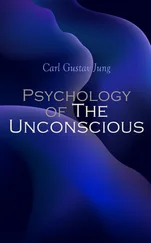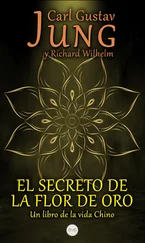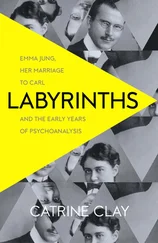C. G. JUNG
Memories, Dreams, Reflections
Recorded and edited by Aniela Jaffé
Translated from the German by Richard and Clara Winston

Williams Collins
an Imprint of HarperCollins Publishers Ltd 1 London Bridge Street London SE1 9GF
www.harpercollins.co.uk
Published in the Fontana Library 1967
Originally published in German under the title Erinnerungen, Träume, Gedanken Copyright © Random House Inc. 1961, 1962, 1963
All rights reserved under International and Pan-American Copyright Conventions. By payment of the required fees, you have been granted the non-exclusive, non-transferable right to access and read the text of this e-book on-screen. No part of this text may be reproduced, transmitted, downloaded, decompiled, reverse engineered, or stored in or introduced into any information storage and retrieval system, in any form or by any means, whether electronic or mechanical, now known or hereinafter invented, without the express written permission of HarperCollins ebooks
HarperCollins Publishers has made every reasonable effort to ensure that any picture content and written content in this ebook has been included or removed in accordance with the contractual and technological constraints in operation at the time of publication
Source ISBN: 9780006540274
Ebook Edition © MAY 2013 ISBN: 9780007381630
Version: 2019-12-10
Title Page
Copyright
INTRODUCTION
PROLOGUE
I FIRST YEARS
II SCHOOL YEARS
III STUDENT YEARS
IV PSYCHIATRIC ACTIVITIES
V SIGMUND FREUD
VI CONFRONTATION WITH THE UNCONSCIOUS
VII THE WORK
VIII THE TOWER
IX TRAVELS
I. NORTH AFRICA
II. AMERICA: THE PUEBLO INDIANS
III. KENYA AND UGANDA
IV. INDIA
V. RAVENNA AND ROME
X VISIONS
XI ON LIFE AFTER DEATH
XII LATE THOUGHTS
RETROSPECT
APPENDICES
I. LETTERS FROM FREUD TO JUNG
II. LETTERS TO EMMA JUNG FROM AMERICA
III. LETTER TO EMMA JUNG FROM NORTH AFRICA
IV. RICHARD WILHELM
GLOSSARY
THE COLLECTED WORKS OF C. G. JUNG
INDEX
About the Publisher
Notes
He looked at his own Soul
with a Telescope. What seemed
all irregular, he saw and
shewed to be beautiful
Constellations: and he added
to the Consciousness hidden
worlds within worlds.
COLERIDGE, Notebooks
This book had its inception during the Eranos Conference held in Ascona in the summer of 1956. There the publisher Kurt Wolff, in conversation with his friends from Zürich, spoke of his wish to have Pantheon Books of New York publish a biography of Carl Gustav Jung. Dr. Jolande Jacobi, one of C. G. Jung’s associates, proposed that the office of biographer be entrusted to me.
All of us were well aware that the task would by no means be an easy one. Jung’s distaste for exposing his personal life to the public eye was well known. Indeed, he gave his consent only after a long period of doubt and hesitation. But once he had done so, he allotted me an entire afternoon once a week for our work together. Considering the press of his regular programme of work, and how easily he tired — for even then he was past eighty — that was a great deal of time.
We began in the spring of 1957. It had been proposed that the book be written not as a “biography,” but in the form of an “autobiography,” with Jung himself as the narrator. This plan determined the form of the book, and my first task consisted solely in asking questions and noting down Jung’s replies. Although he was rather reticent at the beginning, he soon warmed to the work. He began telling me about himself, his development, his dreams, and his thoughts with growing interest.
By the end of the year, Jung’s affirmative attitude towards our joint efforts led to a decisive step. After a period of inner turbulence, long-submerged images of his childhood rose to the surface of his mind. He sensed their connection with ideas in the works he had written in his old age, but could not grasp it clearly. One morning he informed me that he wanted to set down his recollections of his childhood directly. By this time he had already told me a good many of his earliest memories, but there were still great gaps in the story.
This decision was as gratifying as it was unexpected, for I knew how great a strain writing was for Jung. At his advanced age he would not undertake anything of the sort unless he felt it was a “task” imposed on him from within. Here was evidence that the “autobiography” was justified in terms of Jung’s own inner life.
Some time after this new development, I noted down a remark of his: “A book of mine is always a matter of fate. There is something unpredictable about the process of writing, and I cannot prescribe for myself any predetermined course. Thus this ‘autobiography’ is now taking a direction quite different from what I had imagined at the beginning. It has become necessary for me to write down my early memories. If I neglect to do so for a single day, unpleasant physical symptoms immediately follow. As soon as I set to work they vanish and my head feels perfectly clear.”
In April 1958 Jung finished the three chapters of his childhood, school days, and years at the university. At first he called them, “On the Early Events of My Life.” These chapters ended with the completion of his medical studies in 1900.
This, however, was not the sole direct contribution that Jung made to the book. In January 1959 he was at his country house in Bollingen. He devoted every morning to reading chosen chapters of our book, which had meanwhile been hammered into shape. When he returned the chapter “On Life after Death,” he said to me, “Something within me has been touched. A gradient has formed, and I must write.” Such was the origin of “Late Thoughts,” in which he voiced his deepest and perhaps his most far-reaching convictions.
In the summer of that same year of 1959, likewise in Bollingen, Jung wrote the chapter on Kenya and Uganda. The section on the Pueblo Indians is taken from an unpublished and unfinished manuscript that deals with general questions of the psychology of primitives.
In order to complete the chapters “Sigmund Freud” and “Confrontation with the Unconscious,” I incorporated a number of passages from a seminar delivered in 1925, in which Jung spoke for the first time of his inner development.
The chapter “Psychiatric Activities” is based on conversations between Jung and the young assistant doctors of the Zürich mental hospital of Burghölzli in 1956. At that time one of his grandsons was working as a psychiatrist there. The conversations took place in Jung’s house in Küsnacht.
Jung read through the manuscript of this book and approved it. Occasionally he corrected passages or added new material. In turn, I have used the records of our conversations to supplement the chapters he wrote himself, have expanded his sometimes terse allusions, and have eliminated repetitions. The further the book progressed, the closer became the fusion between his work and mine.
The genesis of the book to some extent determined its contents. Conversation or spontaneous narration is inevitably casual, and that tone has carried over to the entire “autobiography”. The chapters are rapidly moving beams of light that only fleetingly illuminate the outward events of Jung’s life and work. In recompense, they transmit the atmosphere of his intellectual world and the experience of a man to whom the psyche was a profound reality. I often asked Jung for specific data on outward happenings, but I asked in vain. Only the spiritual essence of his life’s experience remained in his memory, and this alone seemed to him worth the effort of telling.
Читать дальше
